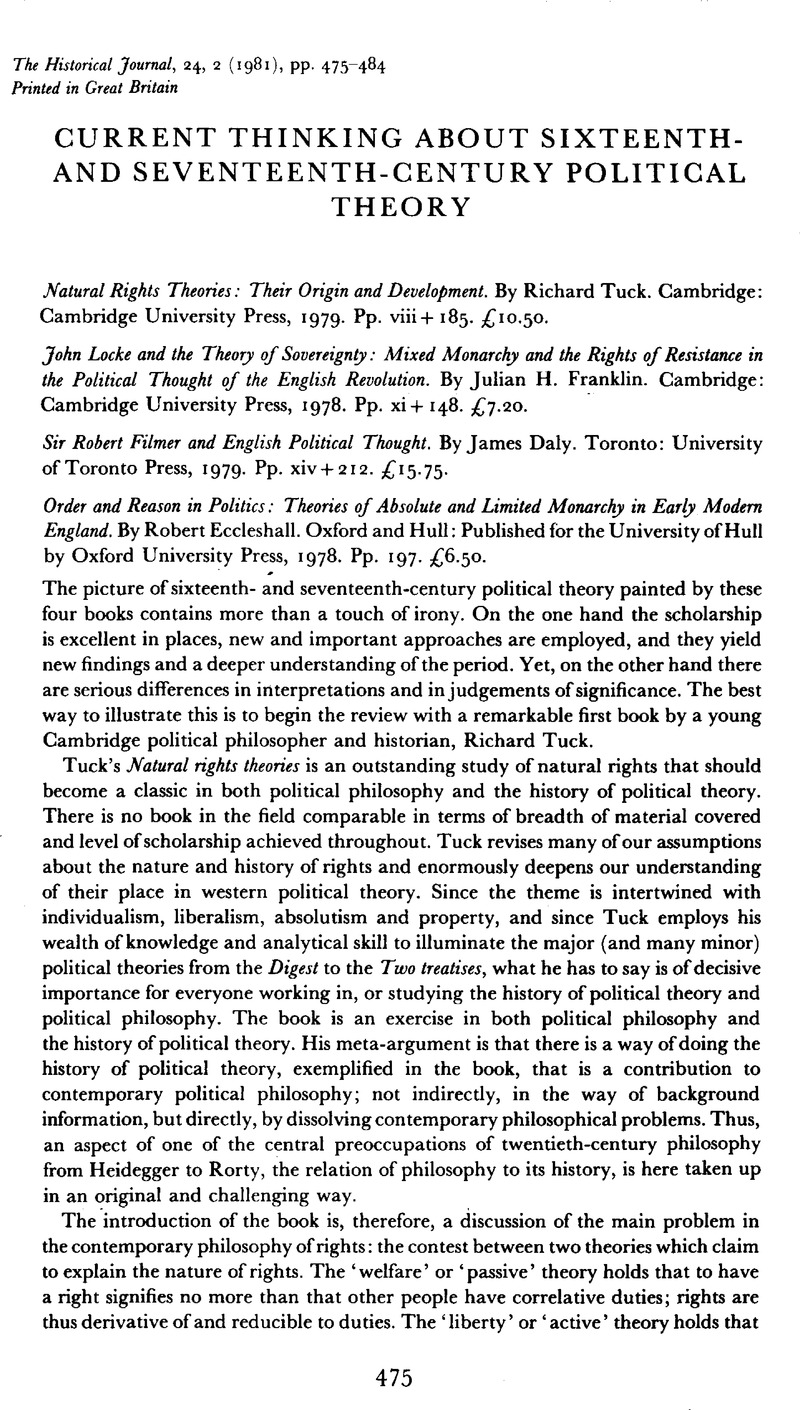Published online by Cambridge University Press: 11 February 2009

1 Richard Tuck, Natural rights theories, p. 1.
2 Tuck, Rights, p. 7.
3 Quentin, Skinner, ‘“Social meaning” and the explanation of social action’,Philosophy, politics and society, series iv, ed. Peter, Laslett, Runciman, W. G. and Quentin, Skinner (Oxford, 1972), pp. 136–57.Google Scholar
4 Tuck, Rights, p. 2.
5 Tuck, Rights, p. 13.
6 Tuck, Rights, p. 43.
7 Quentin, Skinner, The foundations of modern political thought (Cambridge, 1978), II, 339.Google Scholar
8 Skinner, Foundations, p. 239.
9 Skinner, Foundations, p. 338 n. 2.
10 Skinner, Foundations, p. 138.
11 Tuck, Rights, p. 80.
12 Skinner, Foundations, p. 119.
13 Tuck, Rights, p. 82.
14 Tuck, Rights, p. 171.
15 Tuck, Rights, p. 173.
16 Julian Franklin, John Locke and the theory of sovereignty, p. 89.
17 Franklin, Locke, p. 123.
18 Franklin, Locke, p. 124.
19 Franklin, Locke, p. 1.
20 Franklin, Locke, p. 64.
21 Franklin, Locke, p. 3.
22 Franklin, Locke, pp. 125–6.
23 See Richard, Ashcraft, ‘Revolutionary politics and Locke's Two treatises of government’, Political Theory (November 1980).Google Scholar
24 George, Lawson, Politica sacra et civilis (London, 1660), p. 10, cited in Tuck, Rights, p. 145.Google Scholar
25 Lawson, Politica, p. 371, cited in Franklin, Locke, p. 80.
26 Lawson, Politica, pp. 15, 147–8, cited in Franklin, Locke, p. 74.
27 Franklin, Locke, p. x.
28 Tuck, Rights, pp. 144–5; Franklin, Locke, pp. 69–70.
29 Tuck, Rights, p. 144.
30 John, Locke, Two treatises of government, ed. Peter, Laslett (Cambridge, 1967),Google Scholar section II, 168, 232; cf. Skinner, Foundations, p. 338; Tuck, Rights, p. 173; John, Dunn, The political thought of John Locke (Cambridge, 1969), pp. 181–6.Google Scholar
31 Franklin, Locke, pp. 97–8 (the Locke quotation is from Two treatises, section II, 220). My italics.
32 Dunn, Locke, p. 44.
33 Peter, Laslett, ed., Patriarcha and other political works of Sir Robert Filmer (Blackwell, 1949), introduction.Google Scholar